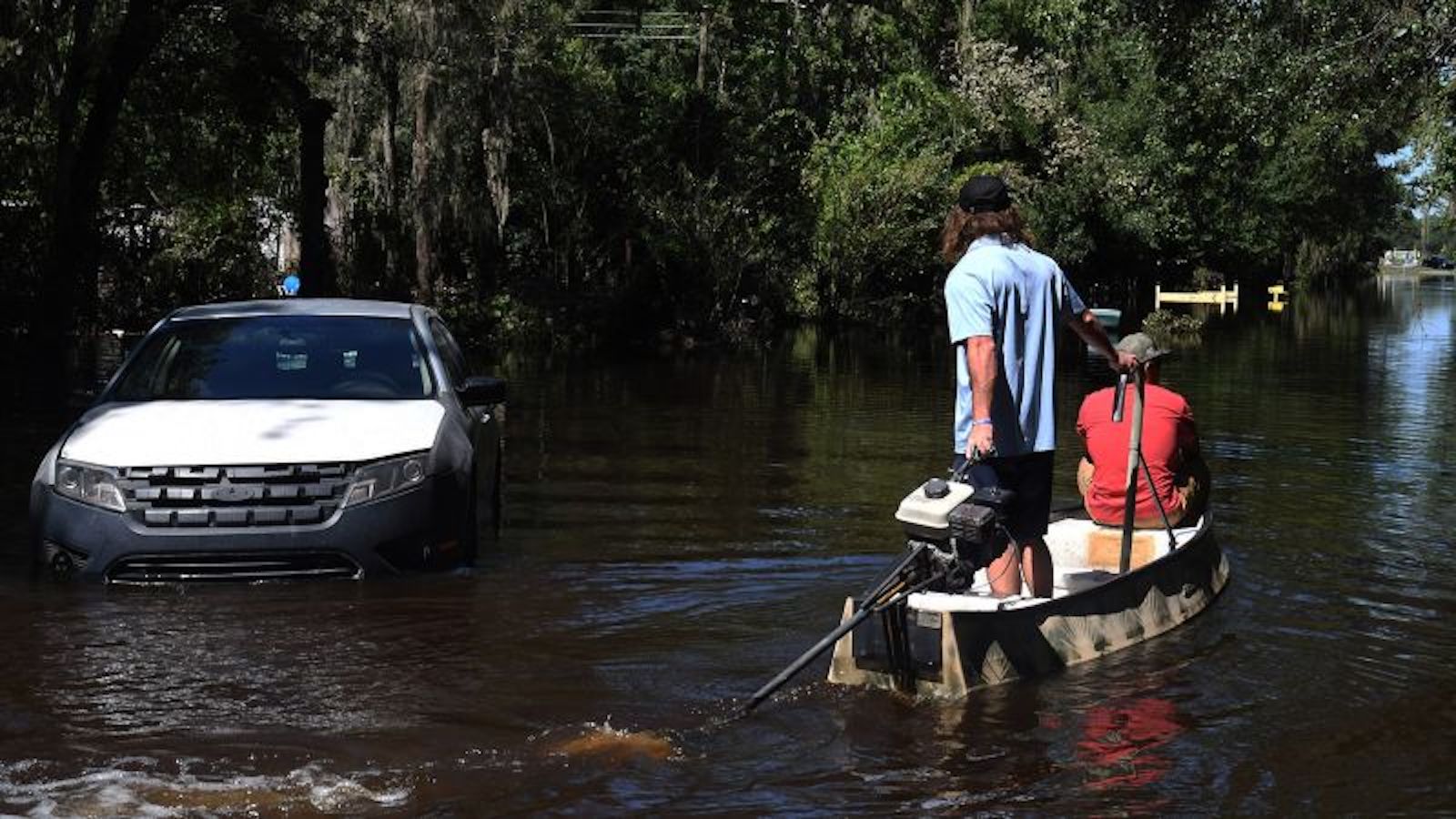Check out Ian's stunning footage in Cuba, Florida and the Carolinas 3:40
(CNN) --
As those affected by Hurricane Ian grapple with the storm's aftermath, a multitude of federal, state and local agencies, along with nonprofit and charitable groups, are stepping in to meet the immediate needs of those Floridians and help them begin to rebuild their lives.
Almost 2,800 people searched for a place to stay this Sunday night in more than 30 shelters operated by the Red Cross and its partners.
More than 2.3 million meals and 15 million bottles of water have been distributed through the state response in seven hard-hit counties.
More than 83,000 residents have already applied for assistance from the Federal Emergency Management Agency (FEMA).
But not all help is immediately available, and not everyone can access help easily.
Also, eligibility for programs may differ based on circumstances.
States affected by natural disasters, such as Florida, have to request certain exemptions from federal agencies before some funds can flow.
And previous federal efforts, spearheaded by FEMA, have repeatedly come under scrutiny for their uneven response.
Low-income residents and those without Internet access will have a harder time finding immediate help and, especially, long-term help, said Justin Dorazio, a research associate at the left-leaning Center for American Progress.
advertising
“It's much more difficult for certain communities that tend to be left behind in these types of processes and programs,” said Dorazio, who argues that assistance should be based on need and not harm.
Florida faces 'emotional roller coaster' as search for Hurricane Ian survivors continues and death toll mounts
A variety of assistance
FEMA administers several programs to help provide eligible survivors of hurricanes and other disasters with places to live.
Offers assistance in renting an apartment, house, or other housing while the applicant is displaced from the damaged primary residence.
The agency may also reimburse applicants for short stays in hotels, motels, or other accommodations.
And it provides financial assistance for the repair or replacement of homes to the owners who live in the residences.
The agency also offers funds to replace furniture, appliances, vehicles, and certain other items for those who qualify.
FEMA can pay for medical or dental expenses caused by the disaster, as well as funeral expenses, moving and storage costs, and increased child care costs.
Generally, this assistance is available to US citizens, permanent residents, or others living in the US Applicants must first go through their insurance companies.
The aid is limited to 18 months after the disaster, although it can be extended in extraordinary circumstances.
Death toll rises to 76 in Florida after Hurricane Ian left some communities 'unrecognizable', officials say
FEMA assesses damage left by Ian in Florida 5:23
There is also other help available in Florida.
For example, beginning Monday, homeowners in Charlotte and Lee counties can sign up for Operation Blue Roof through the US Army Corps of Engineers, which will put temporary blue coverings over damaged roofs to allow homes to be declared uninhabitable and prevent further property damage.
In addition, the US Department of Housing and Urban Development places a 90-day moratorium on Federal Housing Administration-insured foreclosures in the nine Florida counties that were part of President Joe Biden's major disaster declaration .
And the U.S. Department of Agriculture has approved several waivers to allow food stamp recipients in affected Florida counties to purchase hot food with their benefits through this month, to receive replacement benefits, if needed, and to access your October benefits sooner to stock up.
The Florida Department of Children and Families delivered more than $235 million in benefits to more than 773,500 households that were at risk of being affected by Hurricane Ian.
The Florida agency is also applying for the Supplemental Disaster Nutrition Assistance Program, known as D-SNAP, which provides help to low-income households who lost food due to a disaster.
The Agriculture Department said it typically takes at least a week before communities are ready for D-SNAP because survivors are likely focused on their most immediate needs and may not be able to use benefits.
The dramatic rescues from the air after Ian's passage through Florida 0:58
The uneven response to hurricanes
However, not everyone has equal access to federal assistance, particularly the help provided by FEMA.
The US Commission on Civil Rights released a report last month outlining barriers to aid after Hurricane Maria hit Puerto Rico and Hurricane Harvey hit Texas in 2017.
It found that nine days after the storms hit, FEMA approved nearly 23 times the amount of individual assistance for those affected by Harvey than by Maria: nearly $142 million compared to $6.2 million, respectively.
Additionally, Harvey survivors received nearly $1.3 billion in aid within two months of the hurricane's arrival, while it took four months for Maria survivors to receive $1 billion.
Among the report's recommendations were that FEMA's recovery and mitigation process should focus on survivors with the greatest needs, particularly people of color, low-income residents, people with disabilities, immigrants, LGBTQ communities, and other marginalized people.
The agency must also create clearer guidelines for requesting help and provide a sufficient number of staff who are fluent in the languages spoken in the affected areas.
The commission also noted that a lack of electricity and the internet made it difficult for people affected by the hurricanes to access federal assistance.
It recommends that federal agencies provide access to technology to address the gap and create a paper application process if residents don't have power or internet.
FEMA, which did not respond to a request for comment, has made some changes to its application process.
For example, starting this year, it allows homes to be inspected for damage even if homeowners haven't yet verified their titles, Dorazio said.
The agency is working harder to address some of the disparity issues, but it's still nowhere near where it should be, said Elizabeth Albright, an associate professor of practice in environmental policy at Duke University.
“It's not easy to get.
It's often slow,” Albright said, of FEMA assistance to help homeowners rebuild.
"It's often a challenge, especially when someone is going through such an extreme loss, as is the case here."
Humanitarian aidHurricane Ian






